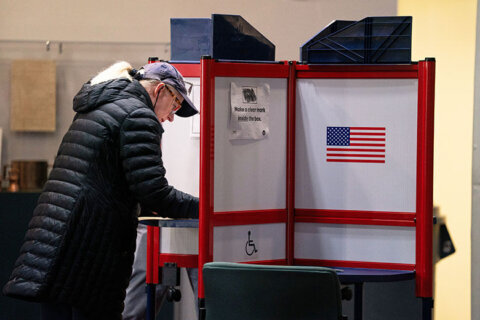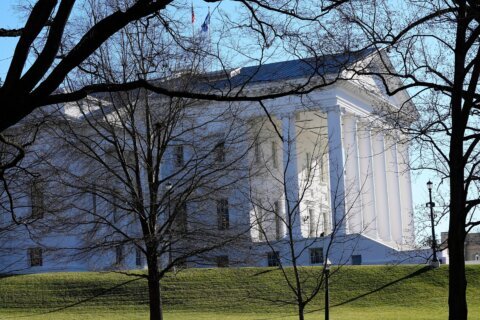RICHMOND, Va. — Virginia Republicans are promising a tax cut plan for couples making around $140,000 a year, and less spending, rather than the refundable tax credit plan for lower-income families proposed by Gov. Ralph Northam.
The competing tax proposals will play a key role in budget and spending negotiations on a wide variety of issues this year. The proposals are sparked by the federal tax changes that took effect in 2018.
Typically, Virginia conforms its tax process to match that of the federal government, but state Republicans are concerned that while some people’s overall taxes would go down, state tax bills could increase. An improving Virginia economy also means the state is collecting additional revenue.
Virginia House Speaker Kirk Cox said Northam’s proposal amounts to “$1.2 billion worth of tax increases on the middle class.”
Northam countered by saying his plan is not a tax increase overall.
“Virginians will benefit from $4 billion of savings,” Northam said. “If we conform to the federal tax code, it will cost Virginians about $300 million. The changes in the federal tax code basically help high earners and corporations, it does very little for individuals that are making less than $54,000 per year.”
He acknowledged there are months to go in budget negotiations, but he hopes for targeted tax changes.
“This is a unique opportunity to really make good investments and investments in tomorrow’s success,” Northam said. “Tax relief should flow to those that need it the most.”
Northam’s proposed budget amendments also assume a bill is passed requiring all online retailers to automatically collect sales tax for purchases sent to Virginia, and would end the accelerated sales tax for about 1,800 more businesses with gross sales up to $10 million. The online sales tax is already supposed to be paid by purchasers, but rarely is when the web retailer does not collect it automatically.
Northam’s budget uses the additional revenue to fund a spending proposal across a number of areas, from schools and housing to health care and education.
House Appropriations Committee Chair Del. Chris Jones said changes to the Virginia tax code could reduce the additional revenue from taxes by up to $1 billion. He said “it’s about $1.2 billion in higher taxes that are going to be collected because of inaction,” if all the state does is conform to the federal guidelines.
Both Cox and Jones believe changes would allow more people to itemize their state tax deductions even if they take the standard federal deduction.
“You will definitively see a tax plan from us before the session,” Cox said.
Del. David Toscano, whose time as Democratic House Minority Leader ends before the session starts, expected a significant debate over any proposal to raise the standard deduction.
“This is not easy, but we have to keep it simple, that’s a key piece here,” Toscano said.
The short session begins Jan. 10, and Senate Republicans also plan similar measures as their House colleagues, Senate Majority Leader Tommy Norment said.
He opposed Northam’s proposal to make the existing earned income tax credit fully refundable.
“Those are individuals that are not paying taxes in that we are going to write them a check,” Norment said.
Northam said those families making less than $54,000 per year are the ones who need this help most.
“Those are the Virginians who already see a disproportionate part of their paychecks go to taxes,” Northam said. “One good job should be enough.”
Any bill to address federal tax changes becomes more complicated since the federal changes end in 2025. That means Virginia’s changes might also be temporary.
“The problem is whatever we do is temporary because it goes away in 2025,” Jones said.
“I don’t know where we start with the budget, because we’re not going to assume the assumptions that he has that we’re going to have $600 million being paid additionally by Virginia taxpayers because of inaction by Virginia,” Jones added.
Both House GOP leaders warned that the spending proposed by Northam is based on “smoke and mirrors” and an “illusion” that the state has money available that the General Assembly could still keep out of the state treasury.
Jones said governors regularly use current forecasts to call for funding on popular issues. He said that makes the legislature play the role of the bad guy when it takes away the funding.







